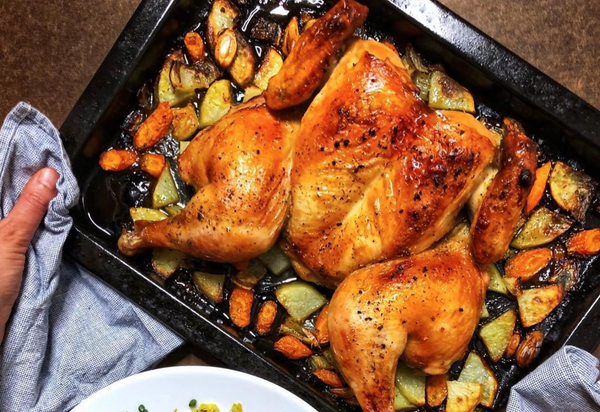Expanding your palate can make all of the difference in your diet. As we grow and age, our bodies adapt and our palates change. An open mind to trying new things can surprise you when it comes to eating. Spinach was once an icky green and soggy mess served up beside dinner. Lentils? Which food group is that?
Gradually working these strange, unknown items into your cooking is the best approach to cleaning up your appetite. But the more important concept to remember is keeping an open mind in your diet choices. Discriminating against certain foods really throws off balance in your palate.
Though, sometimes, our bodies crave something specific, requiring our attention. We have to listen to those cravings, and balance them out. The more we try, the better our chances in finding something we like. I'm talking about different cultures' foods too, people. Just because you can't pronounce it doesn't mean it's not good. Maybe you will surprise yourself.
For many of us, the earlier parts of our lives are spent avoiding foods like vegetables and other funny-looking/smelling items. The latter stages of our lives are spent focusing on different diets where we also avoid food groups like carbs, gluten, meats, sugars and dairy. Why? Because of desired weight loss, trending/fad diets, and health problems.
The simple answer to dieting is sticking to the basics, and consciously avoiding foods that are modified with substitutes and additives. According to an article on genetically modified organisms (GMO) labeling from the International Business Times, there is quite a significant difference between opinions of the FDA/scientists versus American food shoppers on whether GMOs are actually a bad thing. Predicted by Joseph Stanton, a professor of food marketing at St. Joseph’s University in Philadelphia and editor of the Journal of Food Products Marketing: "if mandatory labeling is enacted, there would be two types of consumers: those who actively seek out non-GMO foods and buy only those products, and those who do not care, much like the organic food consumer base." This brings me to my next point:
Your Health is Your Choice. It's time to stop making excuses, and start making decisions. What you put in your body is entirely up to you, though there are certainly influencing factors that complicate our ability to have a wholesome and strengthening diet. Consciously choose what you are buying and eating. Read labels, put more time and effort into your trip to the grocery store. If you are eating out, just face it-- you don't know what you are getting. On the other hand, it is a great way to spark a curiosity in expanding your palate. So get the item you haven't had before. Honestly, you can't eat like a child your entire life.
Nutritionists have convinced society to buy into "nutritionism," which is an ideology. It is not actually a thing. We hear and see the terms 'wholesome,' 'health foods,' 'organic,' and 'natural' with respect to nutritious foods. However, there is an area of gray between the right and wrong things to eat, which translates into good and bad categories of health. The reality is that our bodies need a balance of many things, and the problem lies mostly with eating too much of one thing and not enough of another. Stop the discriminating!
For starters, there are a few things you should try working into your diet to give your body the energy and nourishment it deserves (and for it to function most successfully).
These are known as Power Foods or Superfoods.
spinach, (farm-raised) salmon and steak, blueberries, sweet potatoes, bacon, sprouted grain breads, spelt, rice, quinoa, lentils, chia seeds, ...and really, ANY balance of fruit or veggie. The more colorful, the better.
Fats You Should Be Eating:
Butter, avocado, raw nuts, unrefined oils (olive, flax seed, safflower and coconut oil,) animal fats (steak, bacon, egg, sunflower and pumpkin seeds, cold-water fish, low sodium nuts, olives, flax seed, low-fat cheeses, natural peanut butter
(Seriously, don't just read this. Put them on your grocery list and make them staples for your pantry and refrigerator.)
Fats You Should NOT Be Eating:
Hydrogenated, canola, and vegetable oils; high fructose corn syrup, margarine, or processed carbs like cereals, pastries, pastas, wraps/buns/breads, jellies/jams, mayonnaise, sodas, and sugary drinks (including most fruit juices)
Don't be fooled:
Natural > Reduced Fat
Whole Wheat > Multi-grains
Sprouted grain> Whole wheat
Spinach, Chives > Kale
Spaghetti squash can replace store-bought packaged noodles...yum!
It absolutely requires more effort and time to create healthy eating habits, but is worth it for yourself and for any potential influence you may have over loved ones. Go ahead, grow up, and expand your palate. Peanut butter and jelly sandwiches, macaroni, and chicken fingers are not going to cut it for the rest of your life. Please don't pass bad eating habits on to your own kids


























